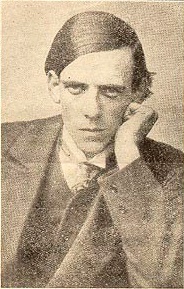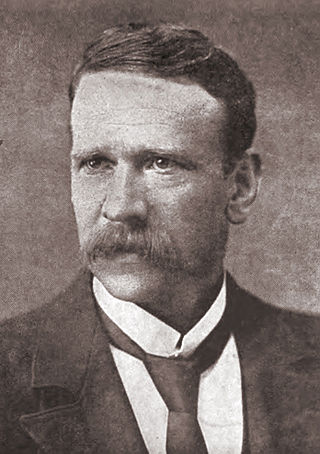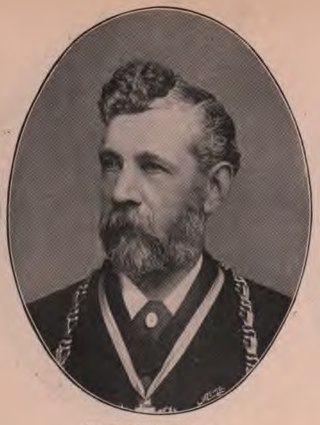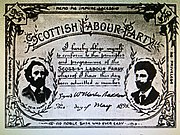
James Keir Hardie was a Scottish trade unionist and politician. He was a founder of the Labour Party, and was its first parliamentary leader from 1906 to 1908.

The Independent Labour Party (ILP) was a British political party of the left, established in 1893 at a conference in Bradford, after local and national dissatisfaction with the Liberals' apparent reluctance to endorse working-class candidates. A sitting independent MP and prominent union organiser, Keir Hardie, became its first chairman.

James Maxton was a Scottish left-wing politician, and leader of the Independent Labour Party. He was a pacifist who opposed both world wars. A prominent proponent of Home Rule for Scotland, he is remembered as one of the leading figures of the Red Clydeside era. He broke with Ramsay MacDonald and the second minority Labour government, and became one of its most bitter critics. As the leader of the Independent Labour Party (ILP), he disaffiliated the ILP from the mainstream party in 1932. Afterwards, he became an independent dissident outside front-line politics.

Robert Bontine Cunninghame Graham was a Scottish politician, writer, journalist and adventurer. He was a Liberal Party Member of Parliament (MP); the first ever socialist member of the Parliament of the United Kingdom; a founder, and the first president, of the Scottish Labour Party; a founder of the National Party of Scotland in 1928; and the first president of the Scottish National Party in 1934.
The Scottish United Trades Councils Labour Party, also known as the Scottish Trades Councils Independent Labour Party, was a Scottish labour party.
Thomas Hargrave Bell was a Scottish socialist politician and trade unionist. He is best remembered as a founding member of both the Socialist Labour Party and the Communist Party of Great Britain and as the editor of Communist Review, the official monthly magazine of the latter.

Robert Smillie was a Scottish trade unionist and Labour Party politician. He was a leader of the coal miners, and played a central role in moving support from the miners away from the Liberal Party to the Labour Party. He had a firm commitment to socialism as an ideal, and militancy as a tactic.
The Labour Leader was a British socialist newspaper published for almost one hundred years. It was later renamed New Leader and Socialist Leader, before finally taking the name Labour Leader again.
The 1888 Mid Lanarkshire by-election was a parliamentary by-election held on 27 April 1888 for the UK House of Commons constituency of Mid Lanarkshire in Scotland.
The 1902 Cleveland by-election was a parliamentary by-election held for the British House of Commons constituency of Cleveland in the North Riding of Yorkshire on 5 November 1902.

Edward Robertshaw Hartley was a British socialist politician.

A 1894 by-election was held for the British House of Commons constituency of Sheffield Attercliffe on 5 July 1894. It was the first parliamentary election contested by the Independent Labour Party.
The Organisation of Scottish Labour is a body established under the national rules of the UK Labour Party.

George Harold Stuart-Bunning (1870–1951), born George Harold Stuart, was a British trade unionist.

Socialism in the United Kingdom is thought to stretch back to the 19th century from roots arising in the English Civil War. Notions of socialism in Great Britain have taken many different forms from the utopian philanthropism of Robert Owen through to the reformist electoral project enshrined in the Labour Party that was founded in 1900 and nationalised a fifth of the British economy in the late 1940s.
James O'Connor Kessack was a British trade unionist.
William Small was a Scottish trade unionist.
Glasgow Trades Council is an association of trade union branches in Glasgow in Scotland.
Robert Mathieson Small was a Scottish trade unionist and political activist.
Benjamin Howard Shaw was a British labour movement activist.









